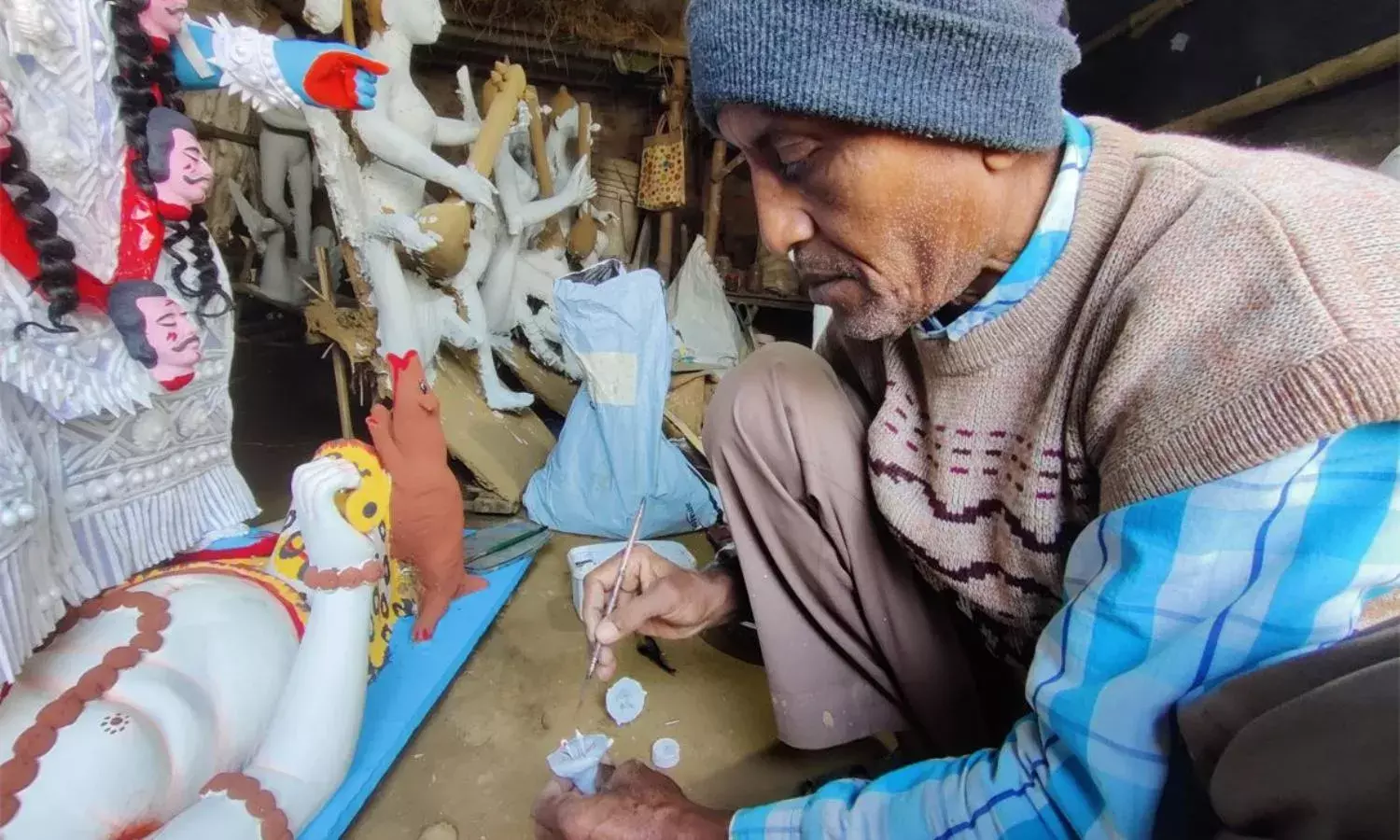Will the Goddess Bless the Potters of Rathtala This Puja?
The pandemic has left deep financial scars on the lives of potters of West Bengal;

"It's the toughest situation I am going through in my life,” says Hridoydas Nandi (68), a potter living in Rathtala, Arambagh, in Hooghly. He is under immense pressure to repay loans but his business is yet to recover from losses incurred over two years of the pandemic. Das also fears that the art of pottery is also on the brink of extinction.
Nandi is a senior pottery artist, who has devoted three decades of his life in making idols. He is famous for being one the prominent artists in Rathtala who specializes in painting the most beautiful eyes of goddesses. But Nandi is a worried man, he is the only earning member of his family and has three daughters who have to be married off. His current financial situation keeps him on the edge.
Durga Puja and other pujas are an integral part of Bengali culture, and are also the major income sources for the state’s potters. But once the pandemic hit, the Government of West Bengal paused the massive pujas gatherings. Two years down the line, the potters are left burdened with debts and are struggling to make ends meet. Around 160 potter families of the Rathtala area are still struggling.
“We had made many idols in advance to stock up, but there's hardly anyone to buy them now," said Tripti Adhikary (45) a woman potter. She is responsible for the care of her paralyzed husband and child. The family also has loans to pay, money they had borrowed to pay medical bills.
There are no takers for the products in stock. Muzaffar, another resident of Rathtala, said, “I have not earned a single rupee for two years. My debts are mounting, I have to repay a loan of Rs 8,000".
Although this year, an ebbing of the pandemic gave potters some hope, the potters say the state government is yet to share plans for Durga Puja 2022. They also suffered losses due to heavy rainfall, just days before the Saraswati Puja. The deluge ruined the base figures of clay and hay. To avoid further waste, potters were left with no choice but to dry the clay mechanically. This in turn increases the framing cost, and with hardly any buyers, a profit seems an impossible dream. “At this point we are barely getting any orders. We have to pay our employees or they will starve,” said leading potters from Pragati Chakra Potter club, in Khanakul.
Many clubs and organizations have also ceased conducting pujas due to the lack of funds. This again reduced the number of orders placed. According to the local potters, while 250 orders were placed here in 2019, only 121 have been placed this year. The potters are in shock. Some are depressed and say “attempting suicide can be the easier option”. Five suicide attempts were reported from here in the past two years.
As the situation gets worse some of the potters of the area are now focusing on making earthenware such as microwave friendly clay cookware and serving disease. However, these products are yet to attract regular buyers, once in a while restaurants serving authentic Bengali cuisine buy these products. The potters also make earthen diyas for diwali as well as showpieces in a bid to escape from starvation. Dealing with immense burdens and loans the potters speak in one voice and urge the state government to step in and save them.

